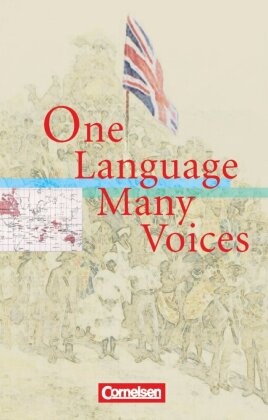Joseph Conrad’s short story is set in Congo and criticizes the attitude and behavior of the white colonial Europeans towards the native black population.
Conrad tells the story of two white Belgian men, Kayerts and Carlier who come to Africa in order to earn money, which they get in the form of commissions from the sale of ivory. But the two of them are absolutely incapable for a life in the uncivilized world where they are left on their own devices and have no supervisors who control each of their steps. They are supposed to take care of a strategically quite unimportant station, but right from the start the director does not believe in them. It seems like the black Makola is the real leader of the station, e.g. he’s the one who sells the station men as slaves and organizes everything. In the end both men don’t get along with their situation anymore and after having shot Carlier in a quarrel, Kayerts kills himself, too, by committing suicide.
In his story, Conrad outlines the fact that the native people and the land are exploited by the colonists. So for example there are ten black station men working for Kayerts and Carlier. Although they have signed a contract with the Company for six month, they have” been serving the cause of progress for upwards of two years” (p. 22, l.13) since they have lost their sense of time and are too afraid to run away. So the colonists are just using them without having great costs. Moreover the directors in Africa have no influence on what kind of people are send to work at the stations. That’s why men like Kayerts and Carlier who come to Africa only out of greed for money (Kayerts wants to “earn a dowry for his girl” (p. 14, l. 20)) are chosen for those jobs. And nobody really cares about their work being efficient or not. A statement of the director points up this evidence very well: “I always thought the station on this river useless, and they just fit the station!” (p. 12, l.3). Kayerts and Carlier are described very negatively. The author portrays them as stupid, lazy and most of all as “blind men” (p. 15, l.43), that means unaware of anything. But nevertheless Conrad lets them be condescending while examining the strange black men and equating them with animals: “Oh, the funny brute! […] Fine animals.” (p.16, l.6-10). And last but not least Kayerts and Carlier accept the fact that their station men were sold as slaves for ivory very soon after being totally hypocritical just for a little while (“They had long ago reckoned their percentage on trade, including in them that last deal of “this infamous Makola”(the slave trade)” (p.30,l.2-4).
Analyse how Conrad criticizes colonialism in the story 'An Outpost of Progress'
postet by Julia Labels: Conrad's Criticism on Colonialism, Outpost of Progress
Abonnieren
Kommentare zum Post (Atom)





1 comments:
Good points!
Some tweeking of language needed.
Kommentar veröffentlichen